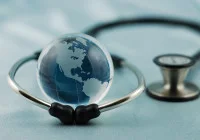The global healthcare landscape faces complex challenges exacerbated by workforce shortages, ageing populations and financial constraints. Healthcare leaders must be equipped not only with technical knowledge but also with the self-awareness required to navigate these difficulties effectively. It is crucial to understand one’s strengths and weaknesses, as well as their perception by others, especially in diverse and dynamic environments. Self-aware leaders can make better decisions, nurture collaboration and adapt to changing circumstances, all essential for addressing today’s pressing healthcare issues.
The Global Healthcare Landscape: Challenges and Commonalities
Healthcare systems worldwide are confronting a series of multifaceted challenges. The COVID-19 pandemic exposed the vulnerabilities of global health systems, highlighting disparities in healthcare access and delivery across countries. Post-pandemic, the focus has shifted to tackling issues such as clinical staffing shortages, ageing populations and rising morbidity rates. In countries like Georgia, the Philippines, Singapore and the United States, leaders are struggling with similar problems, such as workforce shortages and the pressure of managing increasingly complex patient needs.
In Georgia, nurse staffing remains a significant challenge, exacerbated by low wages and inflation. Despite efforts to retrain and retain staff, the shortage continues to affect healthcare delivery. Similarly, the Philippines, a leading exporter of nurses, faces a severe shortage, which is expected to grow over the next decade. In Singapore, the ageing population and chronic diseases place pressure on an otherwise efficient healthcare system. Meanwhile, in the United States, rising healthcare costs, workforce shortages and disparities in access to care are leading to significant challenges.
While the specifics may differ, these nations share a common need for effective leadership that can adapt to the changing healthcare landscape, especially by cultivating self-awareness among leaders.
Developing Self-Awareness: Methods and Strategies
In healthcare, the skill of self-awareness is vital as it enables leaders to build stronger relationships, foster trust and adapt to evolving circumstances. Self-aware leaders can make informed decisions, better understand the needs of both patients and staff and improve communication. This leads to healthier work environments, enhanced decision-making and the ability to act with empathy in challenging situations. Moreover, self-awareness helps leaders manage stress, prevent burnout and maintain high levels of resilience, contributing to overall well-being.
Developing self-awareness is an ongoing process that requires consistent effort. Healthcare leaders can adopt several techniques to cultivate this skill, including self-reflection, seeking feedback and using measurement tools. Self-reflection involves regularly evaluating one’s actions, decisions and emotional responses to identify patterns in behaviour and ensure alignment with personal values and goals. While powerful, this practice requires discipline and the willingness to confront potential biases or areas of discomfort.
Seeking feedback is another critical strategy for improving self-awareness. Leaders should actively solicit input from peers, subordinates, and mentors, viewing it as a tool for growth rather than personal judgment. Continuous feedback, rather than relying solely on annual reviews, provides valuable insights into a leader’s strengths and areas for improvement. Additionally, measurement tools such as 360-degree feedback, personality assessments, and leadership evaluations offer structured insights into a leader’s impact on others, further helping to refine leadership abilities and effectiveness.
The Impact of Self-Awareness on Leadership Agility
Self-awareness is a foundational component of leadership agility—adapting and responding effectively in dynamic and challenging environments. According to leadership experts Bill Joiner and Stephen Josephs, an agile leader has four key competencies: context-setting agility, stakeholder agility, creative agility, and self-leadership agility. A high level of self-awareness benefits each of these competencies.
1. Context-setting agility involves understanding the larger picture, setting clear goals and creating alignment within teams. Self-aware leaders can better scan their environment, assess challenges and communicate a shared vision, particularly in healthcare settings where clarity and direction are paramount.
2. Stakeholder agility is the ability to engage with diverse stakeholders, recognise their viewpoints and build consensus. Self-aware leaders excel in this area because they are attuned to their own biases and can better understand the perspectives of others.
3. Creative agility refers to the ability to develop innovative solutions to problems. This might involve creating new staffing models, improving patient care protocols or finding cost-effective ways to address workforce shortages. Self-aware leaders can think creatively because they understand their limitations and are open to new ideas.
4. Self-leadership agility is the capacity to manage oneself in challenging situations. Self-aware leaders are more resilient, confident and better able to adjust their strategies when circumstances change.
As healthcare systems face unprecedented challenges worldwide, the role of self-aware leadership becomes more critical than ever. Leaders who cultivate self-awareness are better equipped to understand their teams, adapt to changing circumstances and make informed decisions that improve healthcare delivery. By using methods such as self-reflection, seeking feedback and leveraging measurement tools, healthcare leaders can develop the insights necessary to lead with empathy, agility and effectiveness. In the future, self-aware leaders will be instrumental in driving the transformation needed to meet global health challenges.
Source: International Hospital Federation
Image Credit: iStock










